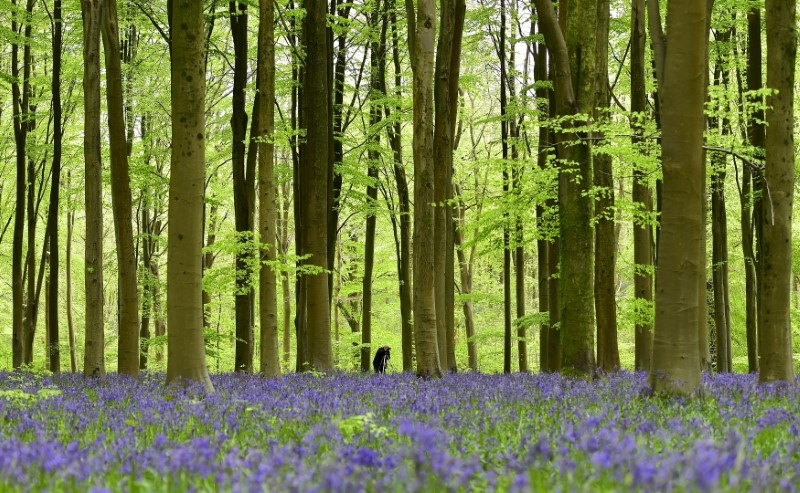By Susanna Twidale
LONDON (Reuters) - Britons should plant many more trees, eat less meat, cut food waste and restore peatlands if the country is to meet its climate target of reaching net zero emissions by 2050, the government's climate advisers said on Thursday.
Britain last year became the first member of the Group of Seven leading industrialised countries to set a net zero target, which will require wholesale changes in the way that Britons travel, eat and consume electricity.
Land use, which includes agriculture, forestry and peatland accounted for 12% of Britain’s total greenhouse gas emissions in 2017, but this could be cut by around two thirds by 2050 with the right framework, the Committee on Climate Change (CCC), said in its first in-depth report on agricultural policies.
The report comes as Britain is developing its own farm policy for the first time in decades as it prepares to leave the European Union and its Common Agricultural Policy.
The CCC said Britain should increase forestry cover to 17%, up from 13%, by planting 30,000 hectares (90-120 million trees) more of woodland each year.
The report said Britons should eat 20% less of the most carbon intensive foods such as beef and lamb and reduce food waste. This would translate into a 10% reduction in cattle and sheep numbers by 2050 compared with 2017 levels.
Farmers should also be encouraged to improve animal health and use controlled release fertilizers to help reduce emissions from soil and livestock.
"We estimate that delivery of these changes in land requires funding of at least around 1.4 billion pounds per year, which can be partly provided by the private sector and partly through public funding," the CCC said.
Under the EU's farm policy, British farmers currently receive about 3 billion pounds a year in public funds.
SOCIAL BENEFITS
The CCC said the changes could generate net social benefits to the country worth 4 billion pounds a year such as better air quality and flood alleviation and could be funded by including forestry in a carbon trading scheme.
The CCC said Britain should restore at least 50% of its upland peat and 25% of lowland peat to capture carbon dioxide.
Much of Britain’s peatland has been affected by livestock grazing and drainage for agriculture, which can lead to it emitting carbon dioxide back into the atmosphere.

The CCC, which is independent of the government, is chaired by former British environment secretary John Gummer and includes business and academic experts.